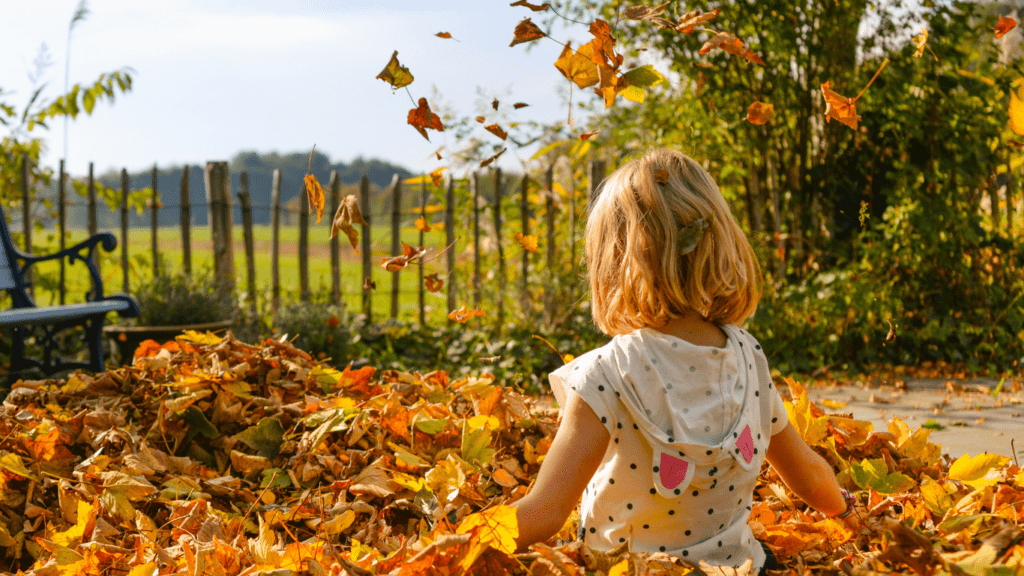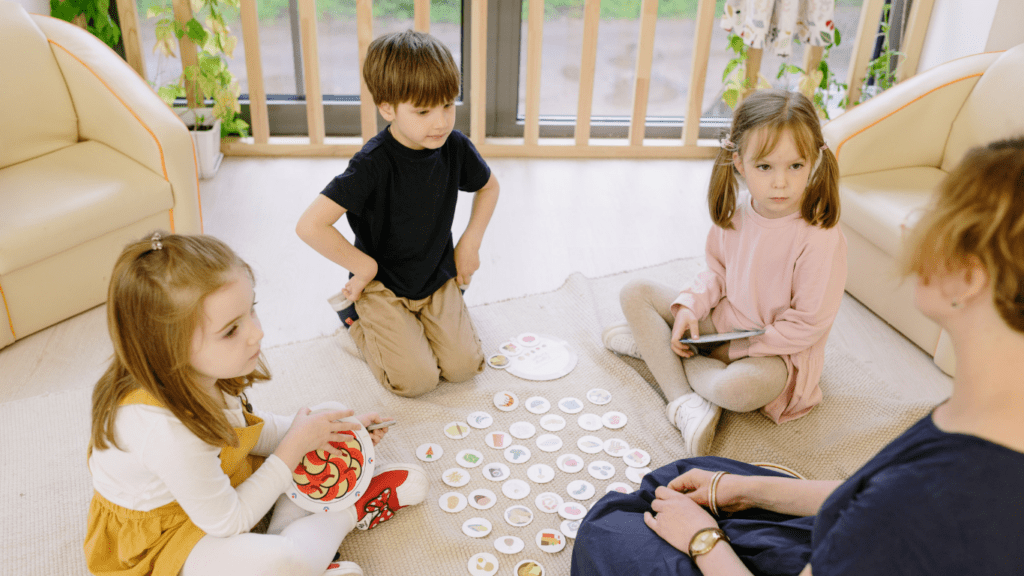Understanding Eco-Friendly Parenting
Eco-friendly parenting embodies the commitment to raising children in a way that’s sustainable and mindful of the planet. It starts with integrating environmentally conscious choices into daily routines. Parents can make a significant impact by opting for reusable items, reducing waste, and teaching their kids about sustainability.
Sustainable parenting focuses on reducing household carbon footprints. This includes actions like minimizing plastic use, conserving water, and embracing energy-efficient appliances. For instance, families might use cloth bags instead of plastic ones for shopping, install low-flow showerheads, or switch to LED lighting.
It’s essential to promote eco-friendly practices in everyday family life. Simple steps, like recycling and reusing materials, help children understand the importance of protecting natural resources. Engaging in outdoor activities, such as gardening or hiking, fosters a connection with nature. These activities nurture an appreciation for the environment and the responsibility to maintain it.
Moreover, eco-friendly parenting extends to the products used for childcare. Choosing non-toxic, organic products for skincare and cleaning reduces exposure to harmful chemicals. Homemade baby food from organic ingredients ensures healthier dietary options, free from pesticides and additives.
By instilling eco-conscious values, parents equip their children with the knowledge and habits necessary to lead a sustainable lifestyle. This responsible upbringing contributes not only to the well-being of their families but also to the preservation of the planet for future generations.
Benefits of Sustainable Practices
Embracing eco-friendly parenting brings many benefits for families and the planet. From environmental impact to health advantages, sustainable practices offer a holistic approach to raising kids.
Environmental Impact
Adopting sustainable practices significantly reduces our carbon footprint. By using cloth diapers instead of disposables, I help cut down on landfill waste. Organic food choices minimize the use of harmful pesticides, promoting healthier soil and water. Opting for reusable items, such as water bottles and shopping bags, decreases plastic pollution in our oceans and landfills. These efforts collectively lead to a cleaner, healthier environment for everyone.
Health Advantages
Sustainable choices contribute to better health for my family. Non-toxic, organic products reduce exposure to harmful chemicals. Homemade baby food made from organic ingredients ensures my kids get nutrient-rich meals without preservatives. Using natural cleaning products decreases respiratory issues caused by harsh chemicals. Sustainable practices promote overall well-being by creating a safer home environment.
Cost Savings
Eco-friendly parenting can be cost-effective. Cloth diapers, though initially more expensive, save money over time compared to disposables. Reusable items, like shopping bags and water bottles, reduce the need for continuous purchases. Homemade baby food is often cheaper than store-bought options. By conserving energy and water, we lower utility bills. These sustainable choices lead to significant long-term financial savings.
Sustainable Practices for Daily Living

Integrating eco-friendly habits into daily routines helps families contribute to a healthier planet and instill sustainable values in children. Here are some key practices to adopt.
Eco-Friendly Diapering
Opting for cloth diapers over disposable ones reduces landfill waste significantly. Cloth diapers are reusable, made from natural materials, and more breathable for babies’ skin. According to the Environmental Protection Agency, disposable diapers are one of the largest contributors to non-biodegradable waste, taking hundreds of years to decompose. Consider brands offering organic cotton and bamboo options for added sustainability.
Green Cleaning Products
Switching to non-toxic cleaning products minimizes exposure to harmful chemicals. Many conventional cleaners contain volatile organic compounds (VOCs), which can affect indoor air quality and cause health issues. Look for products with natural ingredients such as:
- vinegar
- baking soda
- essential oils
Brands like Seventh Generation, Ecover, and Mrs. Meyer’s offer environmentally friendly options that are effective and safe for families. Homemade solutions are another cost-effective alternative.
Sustainable Meal Planning
- Planning meals around seasonal, local, and organic produce reduces the carbon footprint associated with food transportation.
- Seasonal foods often require fewer resources to grow, making them better for the environment.
- Incorporate plant-based meals to lower meat consumption, which has a higher environmental impact.
- The Environmental Working Group suggests that reducing meat and dairy can cut food-related greenhouse gas emissions significantly.
- Preparing homemade baby food from organic vegetables and fruits ensures a nutrient-rich and chemical-free diet for toddlers.
By adopting these sustainable practices, families can lead a more eco-conscious lifestyle while ensuring a healthier environment for future generations.
Reducing Waste at Home
Reducing waste at home is essential for eco-friendly parenting. Families can adopt several practices to make their homes more sustainable.
Reusable Products
Swapping single-use items for reusable products makes a significant difference. Using cloth diapers, for example, reduces landfill waste. Cloth napkins replace paper ones, cutting down on paper waste. Glass or metal water bottles eliminate the need for plastic bottles. Each reusable item contributes to a reduction in household waste.
Composting and Recycling
Composting organic waste and recycling can substantially cut down household trash. Food scraps and yard waste can turn into nutrient-rich compost, enhancing garden soil. Recycling plastics, paper, glass, and metals ensures that these materials get repurposed, minimizing landfill contributions. Teaching kids to sort recyclables fosters lifelong eco-friendly habits.
Minimalist Toy Selection
Choosing fewer, high-quality toys over many plastic ones reduces waste. Wooden or fabric toys are more sustainable and often last longer. Focusing on versatile, open-ended toys encourages creativity and reduces the need for multiple single-purpose items. By selecting minimal, durable toys, families decrease plastic waste and promote mindful consumption.
Teaching Children Sustainability
Teaching children sustainability equips them with lifelong habits to care for the planet. Families can use various methods to make learning about eco-friendly practices engaging and impactful.
Educational Activities
Incorporating sustainability into daily activities makes learning fun. Hands-on projects like planting a garden teach kids about organic farming and the importance of biodiversity. Visiting recycling centers provides insight into waste management processes. Storybooks that focus on environmental themes help instill values through engaging narratives. At home, setting up a recycling sorting game with labels for paper, plastic, and metal fosters practical recycling skills.
Leading by Example
Children often mimic what they see. By demonstrating eco-friendly habits, I can influence their behavior. Actions like using reusable shopping bags, conserving water, and turning off lights when not in use show kids practical ways to reduce their footprint. Discussing the reasons behind these actions, such as saving energy or reducing waste, reinforces learning. Preparing plant-based meals together and discussing the benefits for the environment and health can also set a powerful example.
Community Involvement
Engaging in community sustainability initiatives strengthens children’s commitment to eco-friendly practices. Participating in local clean-up events, tree-planting drives, or conservation projects teaches children the significance of taking collective action for the environment. Volunteering at community gardens or attending workshops on sustainability exposes kids to broader environmental efforts and fosters a sense of community responsibility. Encouraging children to share their experiences and what they’ve learned with peers creates a ripple effect of environmental awareness.



 David Withers – Senior Parenting Advisor David Withers brings over 15 years of expertise in child development and family dynamics to his role as Senior Parenting Advisor at Makes Parenting Watch. A respected voice in the parenting community, David has worked extensively with families, helping them navigate the complexities of raising children through every phase of life—from infancy to adolescence. His articles are known for their evidence-based approach, offering parents practical, actionable tips on topics such as sleep training, positive discipline, developmental milestones, and fostering emotional resilience in children. In addition to his writing, David conducts workshops and webinars to provide personalized advice to parents dealing with specific challenges. His deep understanding of child psychology and development ensures that Makes Parenting Watch remains a valuable and reliable resource for parents seeking guidance in today’s fast-paced world.
David Withers – Senior Parenting Advisor David Withers brings over 15 years of expertise in child development and family dynamics to his role as Senior Parenting Advisor at Makes Parenting Watch. A respected voice in the parenting community, David has worked extensively with families, helping them navigate the complexities of raising children through every phase of life—from infancy to adolescence. His articles are known for their evidence-based approach, offering parents practical, actionable tips on topics such as sleep training, positive discipline, developmental milestones, and fostering emotional resilience in children. In addition to his writing, David conducts workshops and webinars to provide personalized advice to parents dealing with specific challenges. His deep understanding of child psychology and development ensures that Makes Parenting Watch remains a valuable and reliable resource for parents seeking guidance in today’s fast-paced world.
